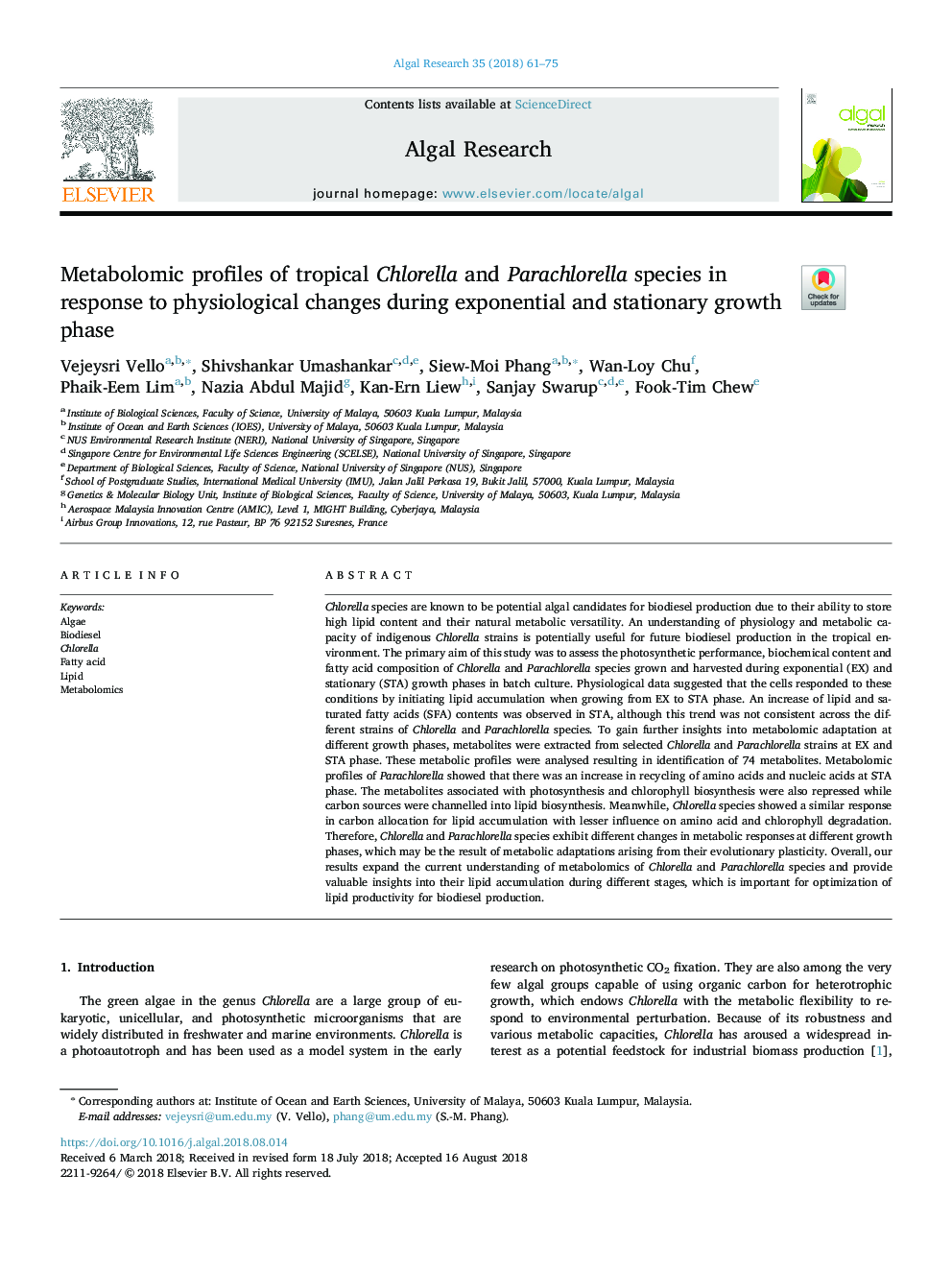| Article ID | Journal | Published Year | Pages | File Type |
|---|---|---|---|---|
| 8943507 | Algal Research | 2018 | 15 Pages |
Abstract
Chlorella species are known to be potential algal candidates for biodiesel production due to their ability to store high lipid content and their natural metabolic versatility. An understanding of physiology and metabolic capacity of indigenous Chlorella strains is potentially useful for future biodiesel production in the tropical environment. The primary aim of this study was to assess the photosynthetic performance, biochemical content and fatty acid composition of Chlorella and Parachlorella species grown and harvested during exponential (EX) and stationary (STA) growth phases in batch culture. Physiological data suggested that the cells responded to these conditions by initiating lipid accumulation when growing from EX to STA phase. An increase of lipid and saturated fatty acids (SFA) contents was observed in STA, although this trend was not consistent across the different strains of Chlorella and Parachlorella species. To gain further insights into metabolomic adaptation at different growth phases, metabolites were extracted from selected Chlorella and Parachlorella strains at EX and STA phase. These metabolic profiles were analysed resulting in identification of 74 metabolites. Metabolomic profiles of Parachlorella showed that there was an increase in recycling of amino acids and nucleic acids at STA phase. The metabolites associated with photosynthesis and chlorophyll biosynthesis were also repressed while carbon sources were channelled into lipid biosynthesis. Meanwhile, Chlorella species showed a similar response in carbon allocation for lipid accumulation with lesser influence on amino acid and chlorophyll degradation. Therefore, Chlorella and Parachlorella species exhibit different changes in metabolic responses at different growth phases, which may be the result of metabolic adaptations arising from their evolutionary plasticity. Overall, our results expand the current understanding of metabolomics of Chlorella and Parachlorella species and provide valuable insights into their lipid accumulation during different stages, which is important for optimization of lipid productivity for biodiesel production.
Related Topics
Physical Sciences and Engineering
Energy
Renewable Energy, Sustainability and the Environment
Authors
Vejeysri Vello, Shivshankar Umashankar, Siew-Moi Phang, Wan-Loy Chu, Phaik-Eem Lim, Nazia Abdul Majid, Kan-Ern Liew, Sanjay Swarup, Fook-Tim Chew,
